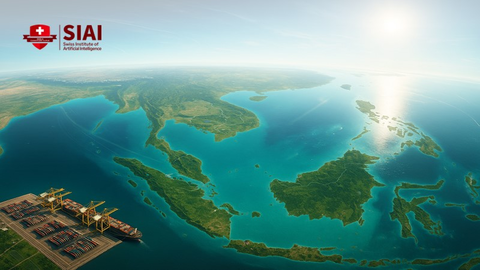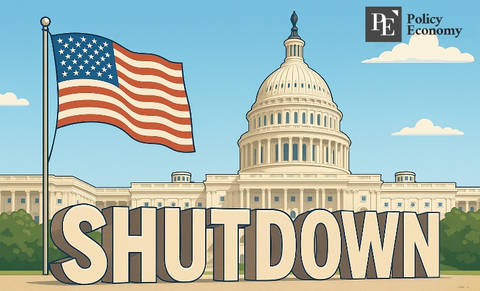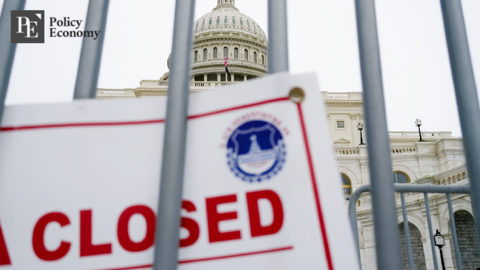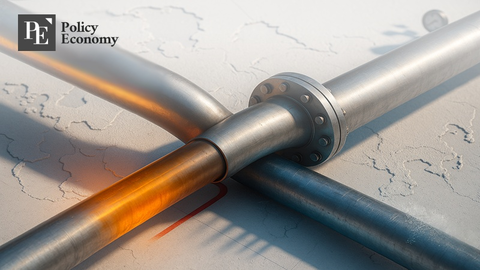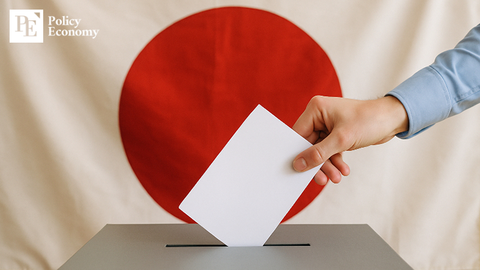[동아시아포럼] EU가 중국과의 관계를 지속하지 않을 이유
입력
수정
[동아시아포럼]은 EAST ASIA FORUM에서 전하는 동아시아 정책 동향을 담았습니다. EAST ASIA FORUM은 오스트레일리아 국립대학교(Australia National University) 크로퍼드 공공정책대학(Crawford School of Public Policy) 산하의 공공정책과 관련된 정치, 경제, 비즈니스, 법률, 안보, 국제관계에 대한 연구·분석 플랫폼입니다. 저희 폴리시코리아(The Policy Korea)와 영어 원문 공개 조건으로 콘텐츠 제휴가 진행 중입니다.
코로나19와 글로벌 공급망 붕괴로 심각한 타격을 입은 서방 국가들과 다국적 기업들이 중국 비즈니스를 재평가하는 분위기다. 중국이 주요한 시장인 것은 사실이지만 중국 경기 회복력에 대한 의문이 크게 자리 잡고 있기 때문이다.
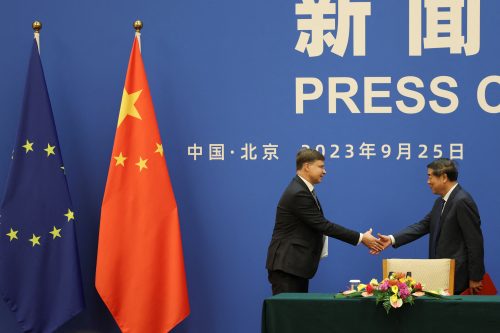
중국 및 글로벌 시장의 경기 침체가 장기화되면서 미-중 간의 상호협력관계가 어느 때보다 더 중요해진 상태다. 양국 관계가 악화 일로에 서 있는 가운데, 시진핑 중국 국가 주석은 지난 3월에 공개 석상에서 미국이 중국의 기술 발전을 저해하고 있다는 발언을 하기도 했다.
중국에 기업 투자 행렬, 방문 행렬도 뚝 끊겨
대만 문제로 인한 지정학적 긴장 관계도 미-중 간의 상호협력을 저해하는 요소 중 하나다. 군사 작전을 통한 대응이 여전히 가설에 불과한 가운데, 다국적 기업들은 정치적인 분쟁이 결국 경제적인 협력을 약화시키는 원인이 되고 있다는 주장을 내놓는다.
중국이 지난해 하반기에 코로나19 장벽을 철회했으나 해외 비즈니스의 중국 방문 및 투자는 크게 위축된 상태다. 다만 중국의 동중국해 및 대만 정책에 대한 정치적인 비판에도 불구하고 기업들은 중국 투자의 중요성을 인지하고 있는 것으로 보인다. 결정의 순간이 올 경우 중국 사업을 분리하기보다는 위험 요소를 제거하면서라도 중국에서 사업을 이어 나가려고 할 것이라는 예측이 나오는 이유다.
애플, 화이자, BHP 등의 주요 미국 기업 대표들이 지난 4월 중국 개발포럼에 참석한 것도 그 증거 중 하나다. 세계 최대 부호로 성장한 테슬라 창업주 일론 머스크가 올 6월 들어 중국을 다시 방문한 것도 마찬가지다. 중국은 미국 다음으로 큰 테슬라의 주요 시장으로, 기업 매출액의 약 4분의 1을 차지한다. 같은 달 마이크로소프트의 빌 게이츠도 베이징에서 시진핑 국가 주석과 면담을 진행했는데, 당시 시 주석은 빌 게이츠 대표에게 "오랜만에 만난 '미국 친구'"라는 표현을 쓰기도 했다.
중국 경기 회복에 대한 기대감 저하, 투자 중단 촉진
그러나 최근 중국 경기 침체가 가속화되면서 중국 소비자들도 경기 회복에 대한 불안감을 떨치지 못하고 있는 모습이다. 이뿐만 아니라 그간 중국 경제 성장을 이끌었던 부동산 시장이 악화되고 있다는 각종 자료가 속속 나오고 있기도 하다. 이에 중국 은행들이 이자율 인하를 비롯한 주요 정책적 노력에 동참하고 있으나 국민 소비 및 기업 투자 확대에 대한 장밋빛 전망은 사라진 상태다.
미-중 갈등이 악화되면서 유럽연합(EU) 국가들도 대중 전략 다원화에 나섰다. 각국의 경제적 상황, 냉전 기간 전제주의 국가와의 과거 역사적 관계, 자유민주주의에 대한 우호적인 태도 등이 복합적으로 작용해 EU 국가들의 전략이 조금씩 다른 것은 사실이나, 중국과의 적극적인 협력 관계에 대한 수요는 크게 줄어든 상태다.
특히 리투아니아는 EU 국가들 중에서도 자유민주주의를 수호하는 데 주요 가치를 두는 국가로, 중국과의 관계에서도 원칙주의 정책에 입각해 있다. 이렇다 보니 대만과의 외교관계를 지속하고 있는 것과 더불어 중국 전제주의 정부의 인권 유린에 대해서도 노골적인 지적을 이어가고 있다. 리투아니아가 대만과 대사 파견을 진행하자 중국 정부가 비공식적으로 리투아니아 상품에 대한 수입 금지에 들어간 것도 이 때문이다.
반면 EU 국가 중 2위 경제력을 자랑하는 프랑스의 경우 중국과의 관계에 좀 더 신중한 접근을 취하는 모습이다. 지난 4월 마크롱 프랑스 대통령의 중국 방문 기간 동안 프랑스는 중국과의 경제 협력을 위해 주요 경제 사절을 대동하기도 했다. 프랑스는 인권 문제만큼은 큰 목소리를 내고 있지만, 리투아니아보다는 중국 비즈니스의 중요성을 인지하고 있는 모습이다.
유럽 내에서도 국가별, 기업별로 중국과의 협력 관계에 복잡한 셈법
같은 국가 내에서도 중국을 대하는 태도에서 정치적인 견해 차이가 나타나는 경우도 있다. 독일은 주요 제조업체를 비롯해 중국 내에서 기업 활동을 진행하고 있는 기관들은 '비즈니스 최우선'을 강조하고 중국과의 협력 관계를 요구한다. 반면 아날레나 베어보크(Annalena Baerbock) 독일 외무상처럼 미국과 같은 전선에서 중국과의 관계 개선을 후순위로 미루는 경우도 있다. 베어보크 외무상은 중국에 대한 의존도를 축소시키기 위해 EU 지역 내에 중국 투자 내역을 점검하고 대중 투자에 더더욱 엄격한 규정을 적용해야 한다는 주장이다. 지난 6월 네덜란드의 반도체 기업인 ASML이 칩 생산 제조 기계 수출을 취소한 것도 같은 맥락이다.
다만 대다수 EU 정책 담당자들은 경제적 손실을 최소화하는 가운데 미국을 따라 중국과의 무역 관계를 단절하는 데 초점을 맞추고 있는 모습이다. 이탈리아 정부는 중국의 일대일로(一带一路) 정책에서 발을 빼겠다고 선언하는가 하면, EU 집행위원장인 우르줄라 폰데어라이엔은 중국 수출 상품 중 기술적으로 민감한 상품들에 대해 엄격한 관리가 필요하다는 입장이다. 반면 헝가리와 폴란드는 중국과의 협력 관계 강화에 나섰다.
대중 무역 적자가 기록적인 수치를 기록하고 있는 가운데, EU 국가들은 중국 전략을 좀 더 실용 노선으로 갈아타는 모양새다. 중국과의 무역 관계를 축소해 중국의 경기 침체에 직접적인 영향을 받지 않도록 디커플링(탈동조화)에 나서는 경우도 크게 늘었다. EU의 관점에서는 중국이 경쟁국인 반면, EU의 일부 국가들과 기업의 관점에서는 중국이 협력의 대상인 경우도 있어 유럽과 중국의 관계는 더더욱 복잡해질 것으로 전망된다.
The European Union not willing to risk business with China
Western nations and multinational corporations, severely impacted by COVID-19 restrictions and supply chain disruptions, are reevaluating their approaches towards China. While many Western businesses view China as a vital market, there is considerable uncertainty about the Chinese economy’s potential recovery.
Amid the backdrop of uncertain economic trends in China and globally, the interactions between the world’s two largest economies, China and the United States, hold significance. Relations are continuing to deteriorate. Chinese President Xi Jinping even accused the United States of trying to hinder China’s technological advances in March 2023.
Geopolitical tensions also exist, particularly over the Taiwan issue. While a military resolution to the matter remains largely hypothetical, the dynamics within the business community demonstrate that political tensions tend to take a backseat to economic considerations.
Since China lifted its restrictive COVID-19 measures in late 2022, it has reopened to foreign visitors and businesspeople. But despite political criticism of Beijing’s assertive stance in the South China Sea and Taiwan, Western businesses recognise the Chinese market’s importance to their companies or personal wealth accumulation. If they ever need to take definitive actions, they would prefer to ‘de-risk’ rather than completely sever ties with China.
The CEOs of prominent US companies such as Apple, Pfizer and BHP attended the China Development Forum in Beijing in April 2023. Elon Musk, Tesla founder and currently the wealthiest individual on Earth, visited China two months later. China is Tesla’s second-largest sales market after the United States, accounting for around one-quarter of total revenue. In June, Microsoft CEO Bill Gates held a meeting with Xi in Beijing, during which the Chinese leader referred to Gates as the first ‘American friend’ he has encountered in recent times.
Poor economic data indicates that even Chinese consumers harbour doubts about the future trajectory of China’s economic development. Statistics reveal challenges in the real estate sector, traditionally a key driver of China’s GDP. Despite recent efforts by Chinese banks, such as slashing interest rates to stimulate consumption and investment, the outlook for the Chinese economy remains lacklustre.
As the Washington–Beijing relationship deteriorates, European Union member states are adopting divergent strategies in their interactions with China. These strategies are influenced by multiple drivers, including each nation’s economic interests, historical experiences with authoritarian regimes during the Cold war, and values such as freedom and democracy.
For example, Lithuania adopts a distinct and principled policy towards China. Lithuania actively champions the fundamental values and democratic principles of the European Union. It openly cultivates political relations with Taiwan and does not shy away from critiquing human rights violations in authoritarian regimes. After Lithuania agreed to exchange diplomatic offices with Taiwan, China effectively imposed an unofficial blockade against Lithuanian imports.
France — the second-largest economy in the European Union — adopts a more prudent approach when it comes to engaging with China. During French President Emmanuel Macron’s visit to China in April, he led a delegation of business leaders to forge new agreements. While this does not imply indifference to human rights issues, France recognises the crucial significance of its business ties with China.
There is also a divergence in political approaches towards China within individual countries. In Germany, there is a faction characterised by a ‘business first’ approach, exemplified by individuals as well as German manufacturers with business operations in China.
On the other side, there is a cohort of EU advocates who closely align themselves with the US stance on China, including the German Foreign Minister, Annalena Baerbock. This group advocates for reduced reliance on Chinese exports, intensified scrutiny of Chinese investments within the European Union and more stringent regulations on outbound investments into China. The Netherland’s ban on exports of ASML chipmaking machines to China in June 2023 is in line with this policy.
Many European officials are increasingly aligning with US views on China while safeguarding their economic interests. For example, the Italian government has indicated its intention to pull out of China’s Belt and Road Initiative. European Commission President Ursula von der Leyen is pushing for export controls on sensitive technologies. Hungary and Poland are both stepping up their economic cooperation with China. For the seventh consecutive year, China is Germany’s largest trading partner, with bilateral trade reaching US$322 billion in 2022.
As its overall trade deficit with China rises to unprecedented levels, the European Union is becoming more pragmatic about future economic cooperation with China. This leads to the de-emphasising of China for many multinational companies and calls for ‘decoupling’. Germany’s latest China strategy affirms the pressing need to establish effective frameworks for future engagements with Beijing.
Despite undeniable evidence of worsening relations between the United States and China, Western businesses continue to maintain ties with China. But even within the European Union, member states have varying approaches when it comes to dealing with China. While at the EU level, China is perceived as a competitor, at the national level, each country possesses a unique set of business interests related to China, which shape their official policies. Striking a balance between accommodating these interests and upholding EU approaches is an arduous task for every country.
원문의 저자는 현재 체코의 J&T 은행에서 중국 담당 총괄을 맡고 있는 마리안 셀리자(Marian Seliga)입니다.


